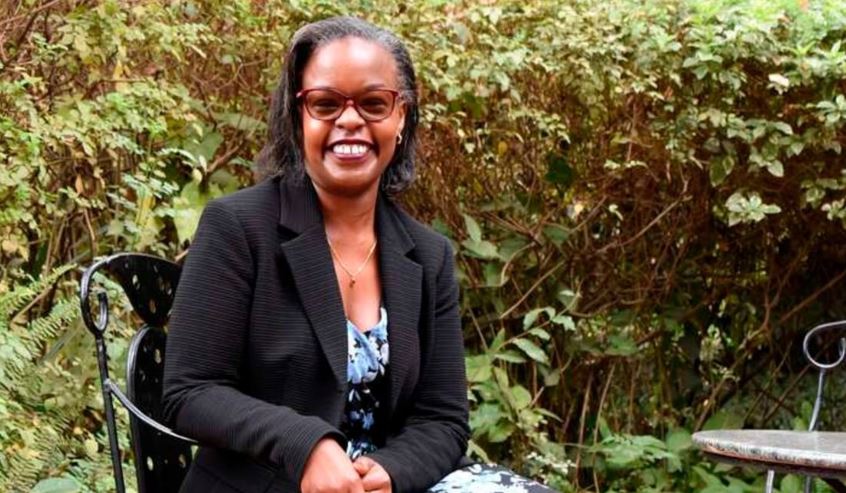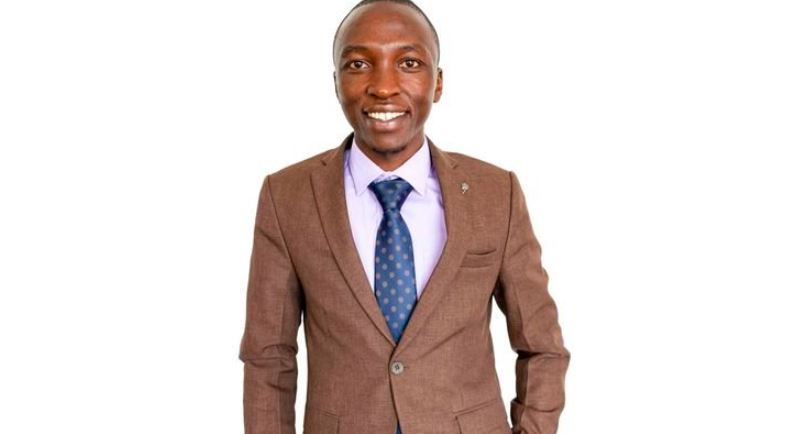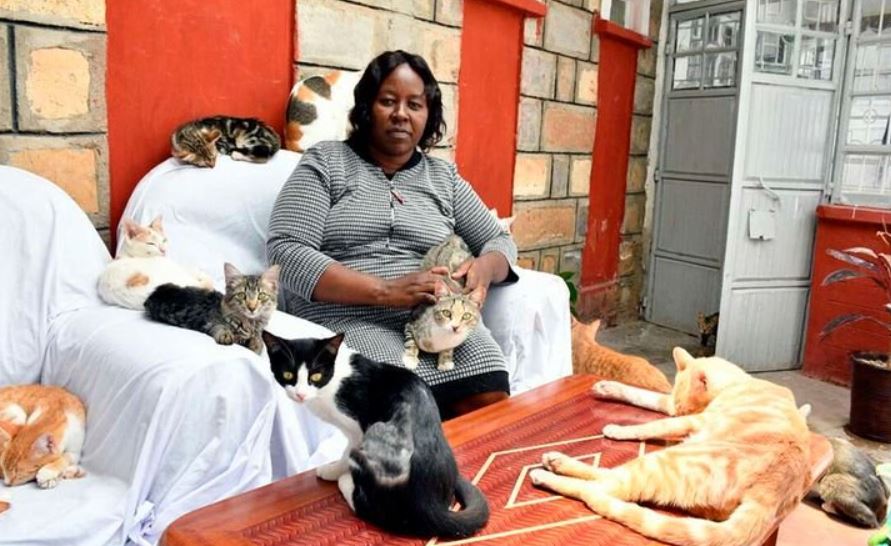
Before then, she was the Africa Managing Partner for Responsible Business and Public Policy for the same company.
Muraya spoke to Jackson Biko for the Business Daily.
Do you think your petite size has worked more for you or against you in corporate?
[Grins] A bit of both. [Pause] I don’t know, but I am reconciled to my size that I don’t even think about it until people say it. But the biggest advantage is that people first underestimate you, which is fantastic because they don’t see you coming…
…then BOOM!
[Laughs] Yup! Generally, they first underestimate you. I had someone ask me directly when I was a manager a long time ago, “oh you’re the new manager? I expected someone maybe bigger with more manager authority?”
When I interview women like you in top positions, I always feel like I have to ask that gender question and I don’t know if that’s beating an old drum. Do you feel like it’s a conversation that we have to keep having?
Yes, we do. It’s a thing you can’t ignore. For the longest time in my career, I was in rooms where I was mostly the only woman. There was never really a person who looked like me.
When you are starting your journey it helps a great deal to know where you are going and often where you are going is in the form of another person who looks like you, another woman in this case. The conversation around gender is important because it’s still a thing.
I mean, only five years ago, I had someone who simply wouldn’t talk to me because I was a female. He wouldn’t shake my hand. These things happen. There is a board I was part of, the youngest guy was 68 years old.
Which year was this, 1979?
[Chuckles] When I was taking over from Daniel Ndonye [the former and first black managing senior partner at Deloitte] who was an accounting rockstar, first of everything, and very well-regarded, they asked him “who is this little girl you’ve sent to us?” I mean, in those words.
But after about a year we got on well like a house on fire. But it took a year for them to be like ‘oh my God she has a brain – she has something to contribute.’ When I started at Deloitte in 1994 as an auditor, the only female partner was an expatriate.
So some of these things you end up having to almost educate these guys [your bosses] because they don’t know, understand or see it. Simple things like, ‘I can work on Sunday, I probably do every so often, but I have to do it at my own time.’
But when I observed them, a number of them, all their wives were housewives, which meant all they saw were bright shiny children. They don’t know what happens for the children to be bright and shiny. So when I would come to work on a Sunday, I could have left the children at home but I didn’t.
I’d come with them just so that they [ male colleagues] understand. And they did, eventually. So that’s why I’m saying sometimes you have to show them that this is actually how a woman’s life in the corporate world is because they honestly don’t see it.
Tell me about your journey from an auditor to the top without using words like hard work, determination, grit, or discipline….tell me what it takes, what does the belly of that beast look like?
Let me give you a backstory that I guess will build it up. I did a Bachelor of Education, Math-Chemistry. I had no clue what I wanted to do. Like none. I happened to intern at Deloitte between my second and third year. Then I was like, “oh okay, interesting.” The internship was like a two-month interview and they said you can come back as soon as you finish, which I did.
I had not done CPAs, actually didn’t even understand accounting. I had to then start learning because I did not understand what they were saying. [Chuckles] I learned it and found different ways to do it. I discovered that I was a terrible student. I have a little attention span. So I decided to teach it because when I teach I have to learn it well enough to tell other people.
What that does for you then is, in a crowd of 20, people will take notice of the things you’re able to do because you volunteered to do something more than what everyone else is doing. I put up my hand for the big scary stuff. It helps you learn and build interesting skills.
You get good at things and then you ask yourself, “what else do I do?” I volunteered for assignments outside Kenya and did something with the global team. Don’t sit there in your space, you are a global firm. Look for other opportunities. Lastly, when I looked at the leaders at Deloitte I asked myself, why not me?
Fascinating. Raise your hand.
Yes. But I also had to make decisions about home for work to happen the way I wanted it to happen. From when my children were small, I had two house helps. It sounded excessive, but I needed infrastructure to work so that when I’m coming back it’s to play with my children and not to do chores in the house.
You need to eliminate things you don’t have to do. No one in your house cares how the tomato landed there so you don’t have to buy it yourself. [Chuckles] Send the housegirl. There are no extra points for buying tomatoes.
Get rid of stuff you don’t need to do so that then you’re able to focus on what’s important and for me, it was my growth and my children. So there was all that work-life integration. Then, children’s schools are very interesting.
My daughter keeps saying I talk badly about housewives, but schools behave like everyone is a housewife. They invite you for a meeting on Thursday! Really? I also learned to tell my children very early that I won’t make it for those middle-of-the-week meetings.
I would request a separate arrangement. The teachers kicked and screamed but then eventually arranged a separate meeting for me. So some of these things I’ve also learned you just need to ask.
I like your hair, by the way. I love the white on them. Makes you look very wise like you know what you’re doing.
[Laughs] Thank you. It’s got chemical but the greys are natural. My grey hair started very early in my 20s. I love it.
How do you think you’ve performed as a mother if you were to assess yourself? Be brutal and honest.
It was really scary at the beginning. It’s very thankless when they’re young. You feel like you’re doing it wrong and again society beats you up about it, “you professional woman!”
But I’m also a little bit hard-headed so some stuff bounces off me now. It was hard when they were small. It got better. I think we have a great relationship. They’re 20 and 22. I like them, they are very interesting people.
Do they like you?
Yes, they do. [Chuckles]They look for me, they talk to me and most importantly they are not embarrassed to hang out with me. [Laughter]
When in your life did you feel the most unstable?
Two hard ones. I’m an only girl. My dad was sick for a month before he passed on in 2015. That hit me very hard because we’re alike. But maybe the one that hit me even harder was my mum getting Alzheimer’s disease, which is just the hardest thing in the world because she’s here, you can see her, but she’s not here.
You feel like you have lost her while she’s still with you. Even now when I visit her, it takes a bit of time before she knows me. I’m afraid, every time I go to see her, that she won’t know me.
There are many people she doesn’t know. Growing up my mom was a love bucket. My dad had the proper army aura but was very cool at home; tickling, and dancing with you. I had a very happy childhood and so this is hard.
How did growing up under a military man shape you?
I’m so like my dad, it’s frightening. Structure and order. But it was also the other end, the command, and control, that I found bizarre. I didn’t like that part of him because we’d have people who didn’t hear what he said but were afraid to ask him.
I’ve always been a person who asks questions – I’m as bad as the two-year-olds. So I can’t imagine being in the army where I can’t ask why.
What life answer are you chasing now?
What difference will it make that I was here? I don’t have the answer now. I wonder when I’m long dead and someone asks, “what was that lady’s name, and do you remember what she did?” Will they say, no they don’t remember? I’m mulling over questions like; Did I treat you fairly? Did I grow your career? Did I open a door for you? Did I leave this a better place? Did I make it easier for you to work? I haven’t figured that out yet.
If we remove work, and you as a mother, describe who we have left.
She’s a slightly extroverted-introvert. I enjoy time by myself. I like small intimate groups where I can laugh and talk. I enjoy walking, more recently hiking. I love nature. I read a lot of articles, not books. I think because they’ll end quickly. I love to dance. I love different kinds of music.
I love the saxophone, I think it’s just the sexiest instrument ever. [Chuckles] I also love church hymns and I like to sing them out loud as well. I sing loudly in my car. I’m very curious so half of my reading is driven by curiosity which normally takes me down a rabbit hole.
I love the ocean, it calms me down yet I don’t swim. Recently though we went to this place in Nakuru called the Cliff and what fascinated me was the stillness of the lake. I like the ocean, the waves make me happy but I loved the stillness of that lake.
As the first female CEO who is also the first black CEO, do you feel the pressure not to let women and black people down?
Yes, there’s pressure. I realise that so many people are watching me and it’s a bit scary given my introversion. I’m also thinking of the young women, I can’t be the first and turn this into a disaster. But as is always the case in life, not everyone is happy for you, and surely I can’t let them win. I wish that wasn’t a thing because the nth guy doesn’t have the same pressure.
If you were to change something about yourself what would that be?
[[Pause] Maybe I’d let loose a bit more, I need to relax. I guess there have been good reasons for me to keep my guard up. But on the whole, we had this guy who took us through a leadership course and he says, there are three marriages; marriage to self, marriage to work, and marriage to whomever you’re married to. All the others won’t work until you’ve sorted out your marriage to yourself.
I like that.
Me too. I reconciled with the fact that I’m done having children, the ones I have are good humans. I like how they have turned out. The other thing was, and it’s my mom who kept telling me this, “you’re too hard on yourself. If you’re tired just sleep”. It’s okay. If it’s too much, just cancel a meeting. Remove the damn cape, don’t be a hero. I’m on the whole happy. This is me.
Let’s talk about the third marriage, shall we, the marriage to the other person. How’s that going?
[Pause] I’m a private person, Biko, so I’d rather not talk about that. However, [holds a finger up] I can tell you that I got married young. [At 25].
Ha ha. OK. Now that your children are grown up and independent, do you suffer from an empty nest or do you now feel free to reflect on your life?
It’s very interesting. My son left first then my daughter followed. They are all in the UK. I felt completely out of control when my son left because he was so far away and he could do whatever he wanted.
Then it was just me and my daughter whom we did everything with but then she also left and I was like, “Oh my God, there are no children!” Which was strange because you always had them and now you don’t.
There was panic and I was like, “what I’m I going to do?” I started asking myself; who am I? But then a month in I called them and said, “Oh my God guys, I’m loving this. I have never lived alone in my life!” And they were like, “Uhm mummy, were you that happy to get rid of us?” [Laughter].
I was afraid of an empty nest but it’s proved to be an interesting way to discover myself. I’m enjoying just being completely selfish. It helps you think about life more closely, and discover new hobbies. I’m also enjoying proper rest time because weeks can be brutal.
You’re in auditing, what’s your maxim on money?
Oh, what pressure now that big words like ‘maxim’ have been used. [Laughter]. Well, [Pause], teach your children about money because I don’t know why it is assumed that they’ll just figure it out.
Also, there’s a thing my mom used to say, if I say it in Kikuyu, [talks in Kikuyu]. It simply translates to “what’s the use of the money in the pocket?” She meant, enjoy it. Don’t live a little, just live. Period.








